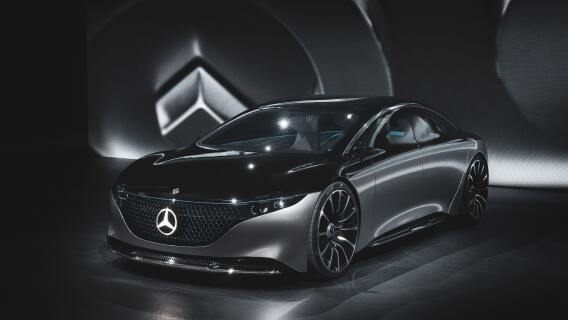The long-awaited automotive revolution is here. Find out what to look for so you can take advantage of the trend.
A mid-1960s Volkswagen Beetle probably isn’t the first car that comes to mind when you think about an automotive revolution. It makes a little more sense when you realize this Beetle is the beloved Herbie, the Love Bug. For those who may not recall, Herbie was the star of several Disney movies that featured this mischievous self-driving car. That was fiction, of course. Today, however, autonomous vehicles are on the roads, and there are more electric vehicles on our streets every day.
This isn’t the first automotive revolution we’ve experienced. Some of the early automobiles were steam-powered, and the first gasoline-powered vehicles were pioneered by Karl Benz and Gottlieb Daimler in Germany in the 1880s. And you know all about the Ford Model T, the ’57 Chevy, and the muscle cars of the ‘70s and ‘80s.
Then in 1996, General Motors designed the EV1. About 1,100 of these electric vehicles made it onto the road, but unfortunately, the entire process was woefully managed, leading to the discontinuation of the car. Fast-forward to 1997, and we have the first Toyota Prius model. Then, in 2006, Tesla (TSLA) opened its doors as a little startup.
[text_ad use_post='129622']
What this timeline fails to mention, however, is that Tesla didn’t begin the electric automotive revolution. Between 1974 and 1977, Sebring-Vanguard produced the all-electric CitiCar. Going even further back to 1901, Ferdinand Porsche developed the world’s first hybrid electric car. And up until the Model T went into major production, about one-third of all vehicles on the road were electric vehicles.
What does all this mean for today’s investors? When we look at investments, it’s always helpful to have a bird’s-eye view. It’s easy to watch a stock price increase and try to jump on for the ride without considering history. In addition to the current and historical automotive revolution, we’ve seen revolutions in energy production, marijuana legalization, healthcare, and so many other industries. Some have proven quite lucrative. Others have helped investors waste a lot of cash.
The automotive revolution
Time it right, and these revolutions can be fantastic sources of profit for your portfolio. They can also be risky. Take Nikola (NKLA), for example. This electric vehicle startup was poised to give Tesla some serious competition. The stock took off, hitting highs even as a global pandemic raged. Then it all came crashing down when a damning short-seller report emerged, indicating that the company was a fraud.
Other companies like Volkswagen (VWAGY) are more established, but still struggling to make significant technological revolutions. Cabot’s CEO, Timothy Lutts, mentioned that “Volkswagens were what I drove when I was young. But nowadays, when I see Volkswagen, I think about Dieselgate, and corporate cheating on emissions standards.” Meanwhile, their stock has been all over the place.
On the other hand, savvy investors are looking beyond electric vehicles and focusing on the potential of autonomous driving technology. We all know the best way to invest in stocks is to get in early on a trend before it’s too late. And while autonomous driving technology is undoubtedly a hot trend on Wall Street now, it’s not nearly what it will be when we start seeing actual self-driving cars on the roads in a few years. Economists estimate that autonomous driving technology could become a $556 billion industry by 2026.
If you could go back a century, would you invest in some of those young car companies, like Ford, Buick, Dodge, and Cadillac—or would you stick with horses? The long-term best choice is evident from today’s perspective.
Similarly, today, should you invest in some of those fast-growing electric car companies or stick with the cheap, dividend-paying gasoline car manufacturers? The long-term choice seems clear.
Sure, some of those old companies will adapt and survive in the new electric and autonomous car world. But there will be casualties along the way.
What is your opinion on autonomous and electric vehicle stocks? Do you think there is still too much potential for failing companies, or do you think now is the time to invest?
